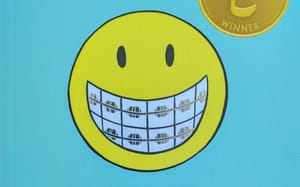Growing fragmentation
In February 2011 I noted …
A while ago I was interested to observe that I had begun to resist buying paperback novels. … In thinking about it, I realised that I only wanted to buy the experience not the physical item. My bag and our house is already cluttered enough. I wanted the few hours entertainment the book provided, not the small burden of owning a bundle of paper to be shelved. // Buying books and/or experiences: a consumer view
In other cases I still wanted to buy a physical item.
In the interim, the reconfiguration of publishing by the network continues. We are even more aware of the staggering impact of Amazon on the book industry, questions about the future of print ‘n mortar stores are more stark, there is consolidation among publishers, publishing and reading options proliferate.
While I am professionally aware day to day of that background, I have been interested in how my reading behaviors continue to shift. The pull of digital is stronger. The benefits of portability, availability, and search weigh heavier. However, my reading has become fragmented in ways that complicate my life as a consumer.
It is fragmented in terms of actual reading experience (Kindle vs print vs other). It is fragmented in terms of collection, where what is on my shelves is joined by what is on my Kindle (in its various manifestations), or elsewhere. It is fragmented in terms of discoverability (store vs website). I often have to chose between grades of experience, and the choices involve tradeoffs (portability vs aesthetics, for example).
Of course, it is also fragmented in terms of ownership, where my ability to resell, share or move an ebook is limited in various ways. This is a major issue, although it is not my main focus here.
Here are some rather ordinary anecdotal examples …..
Anecdote 1: highlighting
I was in the Acorn Bookshop, a used bookstore in Grandview, Ohio, a while ago (which incidentally, is the bookstore which features in the movie, Liberal Arts). I was pleased to find a Nicholas Blake novel, End of Chapter. Blake is the name under which Cecil Day Lewis, poet and father of Daniel, wrote mystery novels. I have wanted to read one of his novels for years, without having been quite motivated enough to go out and get one (he does not figure in the catalog of the Columbus Metropolitan Library). Coincidentally, I was able to buy another couple of Blake novels in Caveat Emptor Books on a trip to Bloomington, Indiana, around the same time.
End of Chapter is set in a publishing house, and, as one might expect, is quite a nice read in a somewhat old-fashioned way. This meant that as I read I kept wanting to highlight sentences for saving to my Kindle space. Not being able to do so created a nagging friction as I read, which is a typical reaction now when I read an interesting book in print. I would always have been an inveterate maker of marginal pencil marks. Even if I rarely went back to them, they were there for future reference … just in case. I now want to save highlights as I read.
This requirement has also made cross-platform differences in the Kindle app a frustration. For a while highlighting was not possible in Cloud Reader, though it now is. The major issue I have with my Windows Phone – with which otherwise I am very happy – is that the Kindle app does not allow me to highlight text. This means that I don’t read books during those interstitial reading moments on the phone. I can’t bring myself to read an e-book which does not have the highlighting option.
And highlighting is important – see Steven Johnson’s interesting post from which this line jumped out …
This ability to capture important clips in real-time as I’m reading a book has probably been the single most important advance in my reading life since the Web came along. // Your outboard memory
Anecdote 2: choosing between benefits
I was going to buy Ambiguous Republic: Ireland in the 1970s by Diarmaid Ferriter when it came out last year. Although it is a bit dispiriting to realise that you are now old enough that the period in which you grew up is the topic of a major historical work. However, do I go with hardback or Kindle?
I want the benefits of the digital, but there are also some pleasures of ownership associated with a physical book like this. These don’t really have an analog in the current e-book environment. This pleasure is also in contrast to the poverty of the Kindle collection experience. It is unclear to me why they do not do a better job of allowing you to manage collections in a congenial way – this seems like a big miss, but presumably their data shows that this is not a big enough requirement to push aside other development needs? I am sure this will get better in the future.
I would certainly lightly annotate a paper version of a book like this, but as I say above I would prefer to keep those passages online now.
A couple of times I have expressed frustration on Twitter or Facebook about having to chose in this way, and in each case somebody responded with the example of music, where, if you buy Vinyl you can also download MP3s. I would be willing to pay extra to get digital and print for some types of books, ones like this one. This point was also made by Nicholas Carr …
There’s a lesson here, I think, for book publishers. Readers today are forced to choose between buying a physical book or an ebook, but a lot of them would really like to have both on hand – so they’d be able, for instance, to curl up with the print edition while at home (and keep it on their shelves) but also be able to load the ebook onto their e-reader when they go on a trip. In fact, bundling a free electronic copy with a physical product would have a much bigger impact in the book business than in the music business. After all, in order to play vinyl you have to buy a turntable, and most people aren’t going to do that. So vinyl may be a bright spot for record companies, but it’s not likely to become an enormous bright spot. The only technology you need to read a print book is the eyes you were born with, and print continues, for the moment, to be the leading format for books. If you start giving away downloads with print copies, you shake things up in a pretty big way. // Rough Type
It seems unlikely that an e-version would be available with the hardback without some price increase. But I probably would not pay the premium that you pay for vinyl. I do not know what price point would persuade me, but I would certainly pay more. I now have several books where I have bought both print and e versions.
My indecision meant I did not buy the Ferriter book when I first saw it – I did not know which way to go. As I write this, however, I went back and bought the hardback. Although, when I get around to reading it, I know that I will be thinking of how I miss the digital highlighting feature 🙂 And I definitely won’t be reading it on a plane, as I won’t want to carry a book of this size around with me.
Anecdote 3: borrowing
I bought Information wants to be shared by Joshua Gans last year. I bought it on the basis of a blog entry by John Naughton, who bought it on the basis of the Amazon abstract. On Amazon.com, it appears to be only available as an ebook. Now, normally for this type of item – which I would like to read, but not necessarily buy – I would suggest to the very fine folks at the OCLC Library that they acquire it. However, acquiring an ebook for lending from Amazon is not an option. So, as it was just $4.99, I went ahead and bought it. This touches on major policy and business issues, but as a consumer it is a way in which previous behaviors don’t map onto current options.
Of course, these may be the ‘morbid symptoms’ that accompany transition between orders. And we will always have choices. I just hope we have some better ones soon … as the reconfiguration continues.
Picture: I took the picture of the book in the feature image recently. It was so nice I had to buy it, whether or not I end up reading it.
Note: Cosmetic amendments made 31 Mary 2021, including addition of image, spacing and headings.




